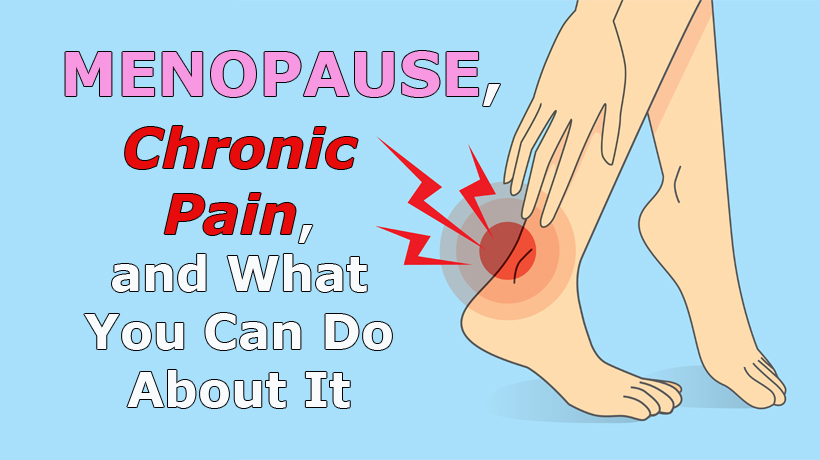Hot flashes, weight gain, and mood swings. As if there weren’t already enough changes in a woman’s body during menopause, women in their late 40s to early 60s are more likely to suffer in pain, too.
According to a study published this month in the North American Menopause Society (NAMS)’s journal Menopause, women are much more vulnerable to chronic pain than men during their menopausal years. Not only are they about twice as likely to feel pain, menopausal women tend to feel pain from arthritis, back pain, and fibromyalgia more severely than men.
Menopause and chronic pain
The San Francisco VA Health Care System (from the U.S. Department of Veterans Affairs) and the University of California, San Francisco funded the study, led by Carolyn J. Gibson, Ph.D.
Gibson and her team analyzed VA medical and pharmacy records from more than 200,000 women aged 45 to 64 years. These women had at least one encounter with VA during 2014 and/or 2015. The research team determined which patients were menopausal based on their age and records of menopause-related symptoms.
The researchers found women were more likely than men to report common chronic pain conditions such as back pain, fibromyalgia, arthritis, and osteoarthritis. Reporting from EurekAlert!, a website resource from the American Association for the Advancement of Science, says research suggests the risk for common conditions that cause or exacerbate pain is highest in midlife women, when estrogen levels are fluctuating and women are entering perimenopause.
“Changing levels of hormones around menopause have complex interactions with pain modulation and pain sensitivity, which may be associated with vulnerability to either the development or exacerbation of pain conditions,” says JoAnn Pinkerton, MD, the executive director of NAMS.
Relief from chronic pain
Menopause may make you feel like your body is behaving outside your control, but there may be some proactive ways to relieve chronic pain. According to WebMD, deep breathing, exercise, and cutting alcohol may help ease your pain.
Research also suggests several relaxation techniques can minimize symptoms of fibromyalgia. Massage, meditation, hypnosis, listening to music, and even a warm hug might help. As for arthritic pain aggravated by menopause, changing your diet to include broccoli, ginger, salmon, and other key foods can reduce inflammation.
Sources:
https://www.eurekalert.org/pub_releases/2019-03/tnam-msn030619.php
https://www.healio.com/endocrinology/reproduction-androgen-disorders/news/online/%7B96af1d16-1d34-4b0e-aa6e-0d752269700f%7D/menopause-symptoms-increase-likelihood-for-chronic-pain
http://www.menopause.org/About-NAMS
https://journals.lww.com/menopausejournal/Abstract/publishahead/Menopause_symptoms_and_chronic_pain_in_a_national.97416.aspx
https://www.webmd.com/pain-management/guide/11-tips-for-living-with-chronic-pain#1
https://www.womenworking.com/5-soothing-ways-to-relieve-chronic-pain-that-dont-involve-medication/



